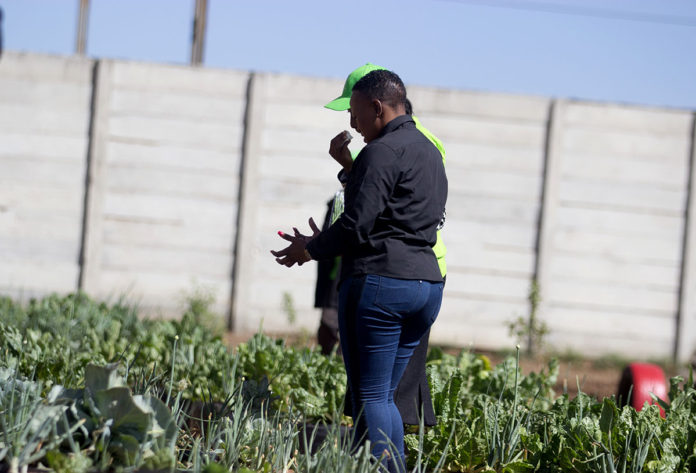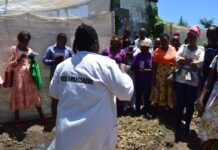|
Getting your Trinity Audio player ready...
|
By Diana Chiyangwa
Johannesburg, South Africa: Amanda Bhengu, an aquaponist based in Johannesburg, is among individuals pushing for the recognition of female aquaponics farmers in the male-dominated agricultural sector.
According to Bhengu, current efforts to bridge the gender gap in agriculture still have a long way to go, with the private sector challenged to take center stage.
“Although, efforts are being made in helping to close the gender gap in agriculture, calls for the private sector to implement several agricultural initiatives that focus on women and democratizing access to data, finance, skills, and mentorship programs,” Bhengu says.
She explained that lack of access to land, finance, and education puts women farmers at a disadvantage. Bhengu notes that the gender gap impacts agricultural outputs, food security, and economic growth.
Historically, men have dominated almost every industry, and agriculture is no exception. Patriarchal societies expect women to look after homes and families. As the world evolves, women are now acknowledged for standing out while pursuing their dreams.

A recent report by Multidisciplinary Digital Publishing Institute (MDPI) highlights how to influence, change, and technological know-how could benefit women farmers’ participation in development programs like agriculture. Technology is touted to empower more women to run farms and take on leadership positions.
However, African women, especially those working in rural areas and on smallholder farms, have limited access to investments to transform their lives and tackle gender inequality across the agricultural sector.
“If we are equipped with an agricultural enterprise that is resilient, adaptive to change, and competitive we will combat the challenges we face”, added Bhengu.
According to the women in agriculture report, gender inequality has been a significant disparity in the labor market, where women are subjected to inequality, discrimination, and social cohesion. Elsewhere, the Global Gender Gap Index 2021 indicates that education and skills for women in the agricultural sector are lacking compared to their male counterparts.
Gender disparities
Despite the disparity, the agricultural sector across the continent ranks as the most
productive industry employing 70% of the population while contributing about 23% to the GDP of the continent.
“For Africa to fulfill the 2030 Sustainable Development Goals (SDGs) agenda, the empowerment of women agripreneurs must be placed at the center of policy making, and then carefully monitored to ensure implementation and achieved outcomes,” says Corteva, an Agriscience company dedicated to supporting female farmers, through theoretical and experimental training and facilitating networking opportunities with other farmers.

However, there is slight progress across the continent, with women gradually taking up significant roles in agriculture. Their resilience and determination to succeed in a gendered sector inspire other female farmers to take the mantle.
It’s farmers like Bhengu who sometimes challenge the inequitable gender barriers to inspire other women in farming spaces, to fulfill their goals by advocating public awareness of women’s success in agriculture and air policy issues relating to the advancement of women across South Africa and the entire continent.
Female trailblazers in agriculture play a critical role in tackling the drivers of farming and increasing urban and rural poor ability to adapt to climate change. They are helping farmers set up soil fewer farming foundations for high-impact adaptation and educate citizens on farming projects that create green jobs and improve livelihoods.
In a recent article by the FarmersReview on gender equality, United Nations called for the promotion of women in rural areas to have the same access to land, technology, financial services, education, and markets as men. The UN opined that equality in the sector lowers the number of hungry people by 100-150 million.
A study by the Sustainability Initiative of South Africa (SIZA) an Initiative of Agriculture of South Africa clearly indicates through their qualitative and quantitative data on how women are represented within the country’s agricultural sector. The report also highlights how women have been emancipated and areas where improvements can be made to eliminate the consequences of past injustices, cultures, and other relegation.
Through the enhanced technology, Bhengu shares her expert insights on Twitter spaces to empower aspiring farmers in navigating the agricultural space. She believes that women need to join hands and build networks through social media platforms.














